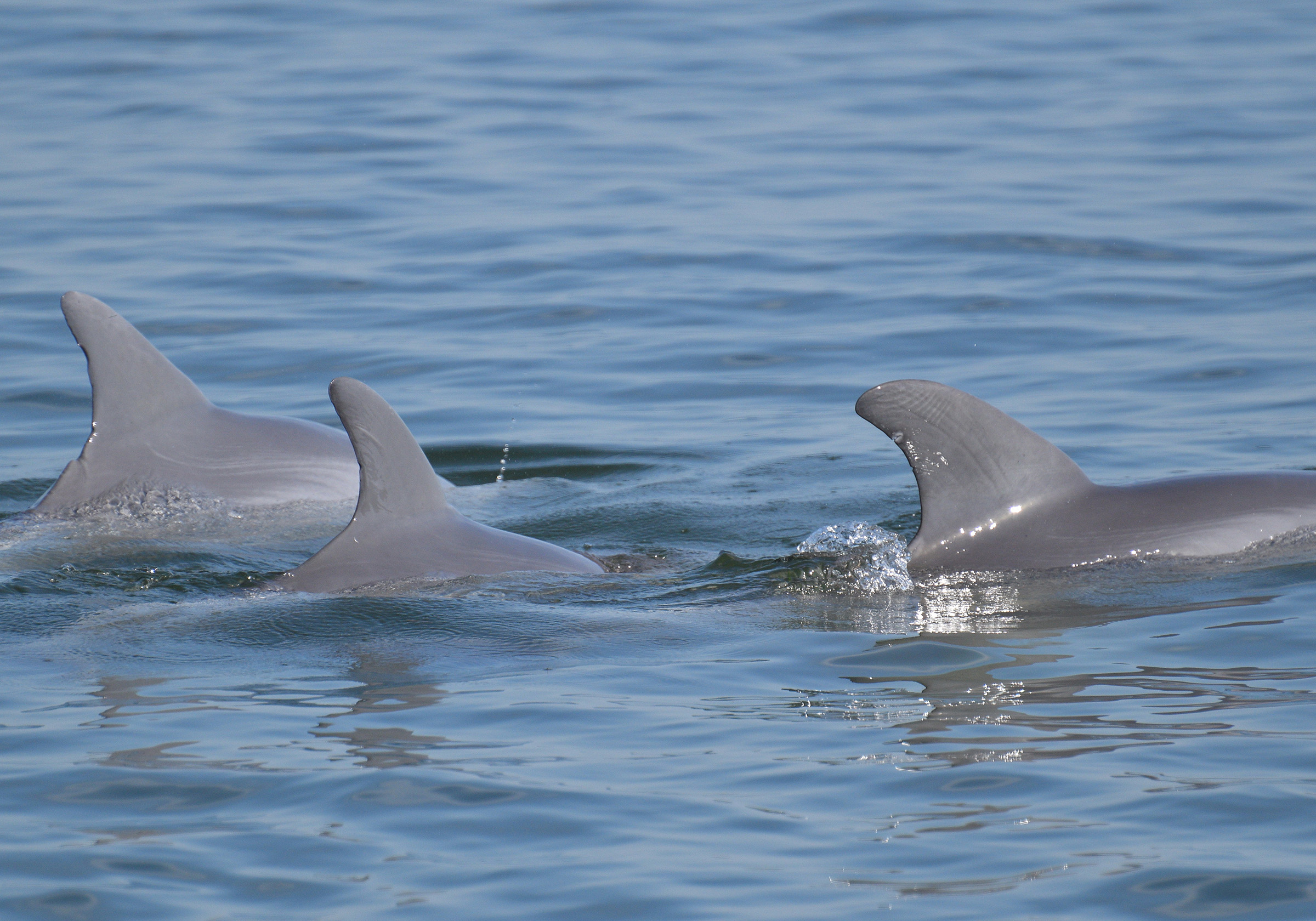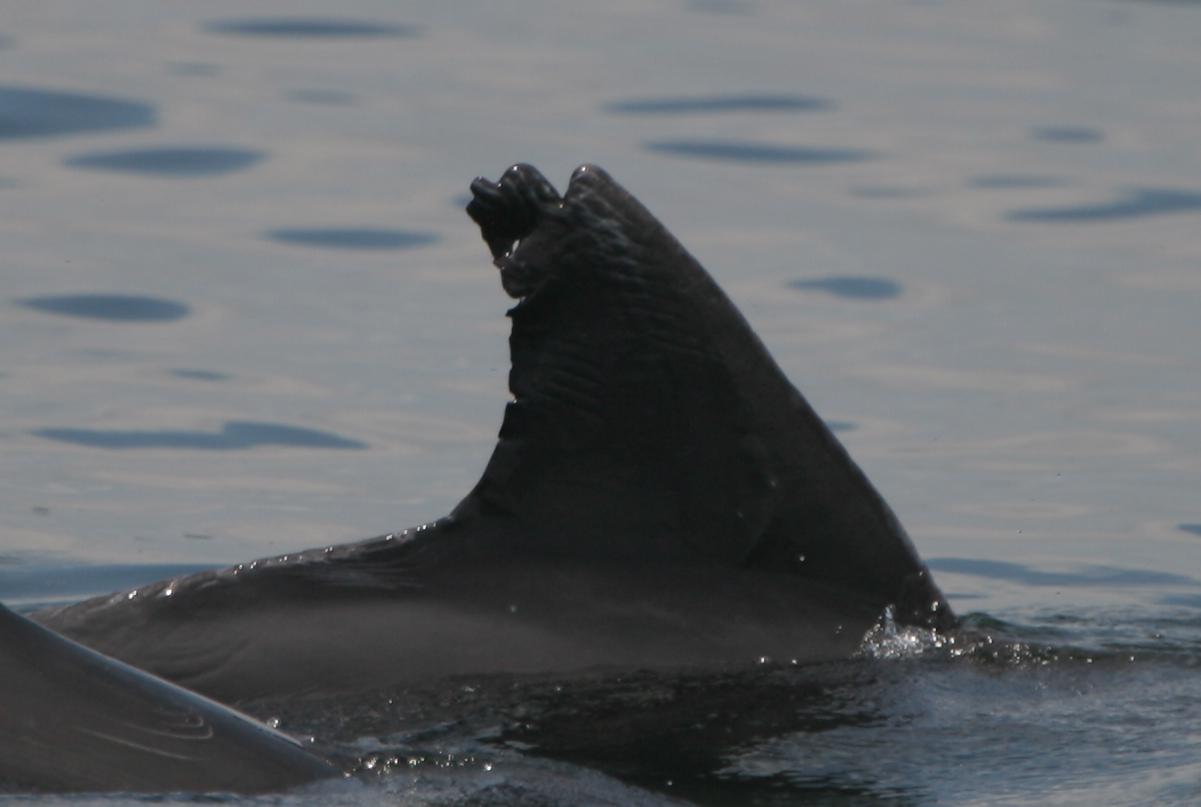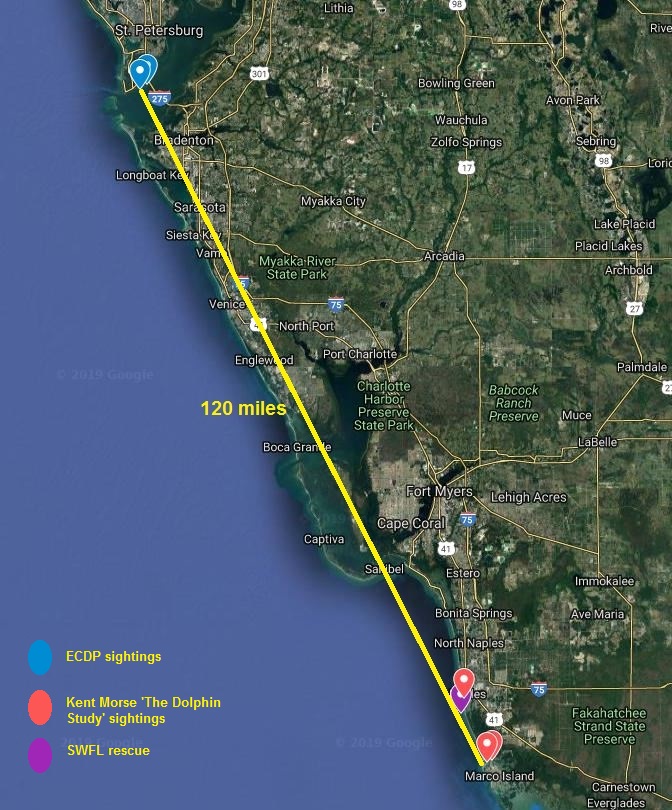The Gulf of Mexico Dolphin Identification System

The CZS-SDRP curates the Gulf of Mexico Dolphin Identification System (GoMDIS), which combines, standardizes, and serves as an online archive for dolphin ID catalogues from groups throughout the Gulf of Mexico — including Mexico and Cuba. This repository allows us to identify dolphins throughout the Gulf and discover changes in ranging patterns or even determine the origins of stranded dolphins. Automated fin-matching software helps us track dolphins across catalogs.
To create a dolphin record, we collect the best left and right fin images of each animal in our collaborators’ catalogs, along with the animal’s individual details (male, female, year of birth, if known, etc.) and sighting history. After we have processed the images and data, we can use it to search for animal matches between catalogs. Typically, we won’t know whether animals are “shared” — seen in more than one catalog — until we conduct a search for an individual.
GoMDIS data is held on the Ocean Biodiversity Information System server (OBIS-SEAMAP) and accessible to our contributors through their photo identification web-based platform. Catalog contributors must operate under a National Marine Fisheries Service Scientific Research Permit.
GoMDIS includes:
- 43 dolphin ID catalogs from research programs throughout the Gulf
- 25,511 individual animals
- 46,135 images
- 2,077 matches between catalogs are known to date
In this video, SDRP’s Carolyn Cush explains GoMDIS and why it was created following the 2010 Deepwater Horizon Disaster. This presentation took place in August 2022 during the 24th Biennial Conference on the Biology of Marine Mammals.
One of the main benefits of this collaborative catalog is the ability to piece together sighting histories of an individual dolphin when located by different research programs, which helps us gain a better picture of a particular animal’s life history. One interesting example is an animal that was known to the Eckerd College Dolphin Project (ECDP) based in Tampa Bay, Florida. This animal made a fairly sudden shift to the south, all the way down to Marco Island — a straight-line distance of more than 120 miles!
Thanks to the GoMDIS catalog, we know that the dolphin, nicknamed STKR by ECDP:
- Was seen twice in Tampa Bay in the summer of 2005
- In January 2006 — about six months after the Tampa Bay sighting — the dolphin was observed by the citizen-science group, The Dolphin Study, near Marco Island. That group cataloged the dolphin as “Cockatoo.”
- In 2010, the dolphin was found off Naples entangled in crab trap line and rescued by Florida’s Fish and Wildlife Conservation Commission
- In 2018, The Dolphin Study observed the dolphin again off Naples
Without GoMDIS,** we would not know about the animal’s shift to the south or that it had been entangled, rescued and survived.


**In some cases, for example where we have engaged in dolphin interventions and we need to follow-up on the rescued individuals, we have had access to catalog data that can’t be included in the formal contributor-accessible GoMDIS database because they were not obtained under a National Marine Fisheries Service Scientific Research Permit.
GoMDIS Contributors
| Organizations collaborating on GoMDIS* *As of April 2021. |
| Chicago Zoological Society/Sarasota Dolphin Research Program |
| CIMRS/NOAA/OSU Hatfield Marine Science Center |
| Clearwater Marine Aquarium |
| Dauphin Island Sea Laboratory |
| Dolphin Ecology Project |
| Dolphin Research Center |
| Dolphins Plus Marine Mammal Rescue |
| Eckerd College |
| Emerald Coast Wildlife Refuge |
| Eye of the Whale Research |
| Florida Aquarium |
| Florida Fish and Wildlife Conservation Commission |
| Florida International University |
| Florida State University |
| Gulf World Marine Institute |
| Marine Mammal Pathobiology Laboratory/Florida Fish and Wildlife Research Institute |
| Mote Marine Laboratory |
| National Aquarium of Cuba |
| NOAA/National Ocean Service |
| NOAA/NMFS/SEFSC |
| NOAA/NMFS/SERO |
| Texas A&M- Corpus Christi |
| Texas A&M- Galveston |
| Texas Marine Mammal Stranding Network |
| Tropical Dolphin Research Foundation |
| University of Central Florida |
| University of Houston- Clear Lake |
| University of Massachusetts- Boston and Dartmouth |
| University of South Florida |
| University of Southern Miss/TAMU |
| University of Southern Mississippi |
| University of Vera Cruz |




